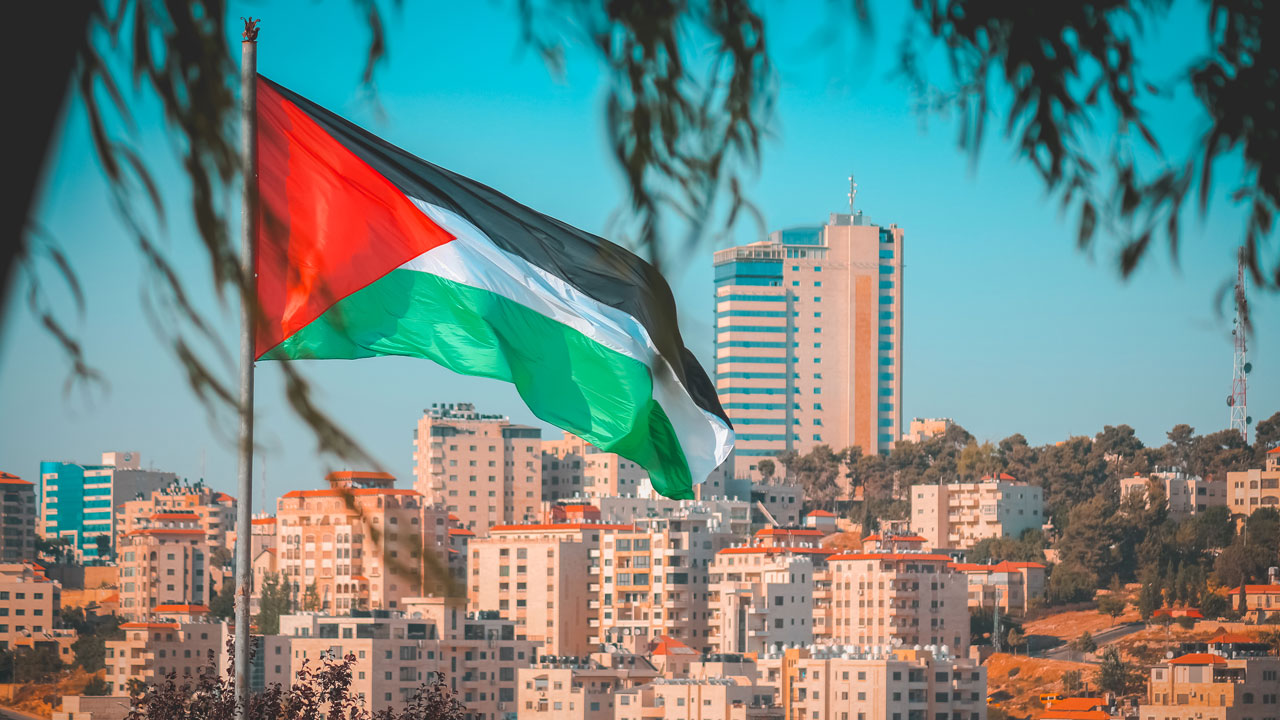
Ahead of COP26, British Consul-General to the Occupied Palestinian Territories (OPT), Diane Corner, handed over Tetra Tech’s report on climate change in the territories, commissioned under our Takamol programme, to Prime Minister Mohammed Shtayyeh.
The report highlighted the likely impacts of climate change on the OPTs and challenges stemming from the occupation in coping, adapting and addressing climate change related factors.
The report was authored by Sharmala Naidoo, our Tetra Tech climate change technical lead, local consultancy Momentum Labs and Mr. Kasim Abdo, with support from the Takamol team. The combined Palestinian and international expertise in climate, environment and governance was invaluable to the production of this report.
With climate change and the UN Climate Change Conference taking the global spotlight, we are pleased to be supporting the Consulate on their COP26 engagement with the Palestinian Authority. We will present the findings and recommendations of the report at COP26 and deliver a number of workshops to other development cooperation partners, senior officials of the Palestinian Authority and advisors, thereafter.
As negotiations in Glasgow begin, George Connor, our project manager on Takamol, offers some valuable insights into this piece of work.
A complex region
The Palestinian Authority (PA) operates within a challenging environment. The ongoing Israel-Palestinian conflict negatively impacts Palestine’s capacity to address climate change and particularly exacerbates existing water scarcity in a region that is heavily dependent on agriculture. The geographic and administrative fragmentation of the Occupied Palestinian Territories (OPTs) further complicates governance and service delivery. In this complex context, understanding how conflict and climate change influence each other is key to supporting both climate adaption plans and contributing to sustainable peace.
Institutional experience
Under the umbrella of our Takamol project, we worked with the UK’s Foreign, Commonwealth and Development Office (FCDO) to analyse the political economy of climate change within the Occupied Palestinian Territories. Our work was informed by our institutional expertise in providing FCDO with political economy analysis and our established network of Palestinian partners, together with a series of stakeholder interviews. Building on previously commissioned analysis and providing new insights, we were able to highlight issues that need to be addressed and suggest ways in which development cooperation partners could support the PA to deliver on their climate action plans.
Transformational knowledge
This important piece of work places the FCDO in a more informed position to ensure that climate change is considered in the UK’s support of the Middle East Peace Process and the establishment of a sustainable two-state solution. But our support is not just essential to furthering sustainable development in region – it also lays the foundation for the FCDO’s wider engagement on climate change, particularly in light of the UK’s Presidency of COP26.
We’re delighted to see that this work has been well received: following FCDO’s request, we are now looking forward to providing further support to key Palestinian institutions to strengthen their engagement with COP26 and translate climate strategy into action in the Occupied Palestine Territories.